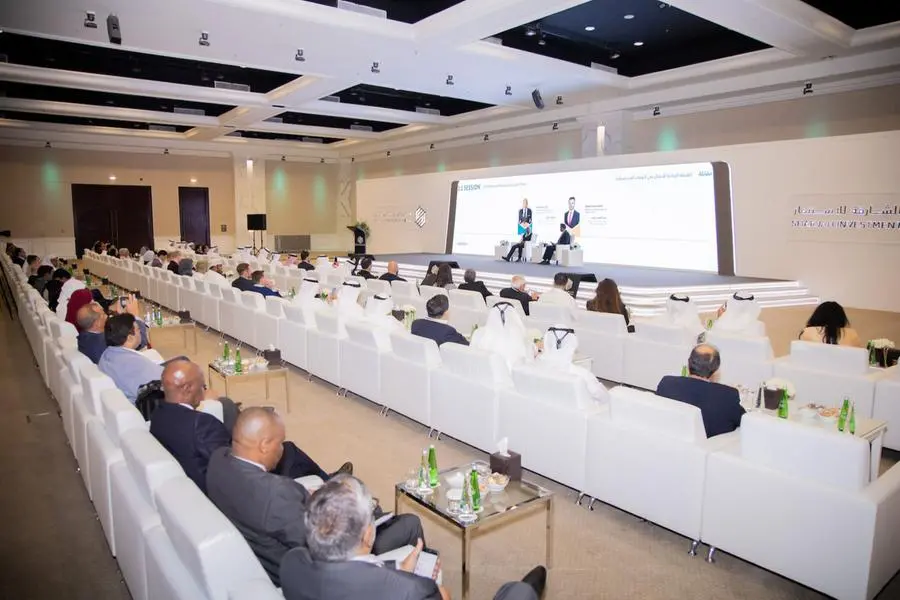Hamad Bin Khalifa University (HBKU) is set to host a landmark conference dedicated to artificial intelligence (AI) ethics, drawing global attention from scholars, tech innovators, policymakers, and students. This highly anticipated event aims to create a platform for discussion on AI’s ethical dimensions, social responsibilities, and its transformative potential across industries.
The conference will emphasize the importance of using AI responsibly in sectors such as healthcare, education, finance, governance, and public services. It is designed to provide a comprehensive understanding of the intersection between technology and ethics, highlighting how AI can be leveraged for the greater good while mitigating potential risks.
Leading Voices in AI Ethics
The conference will feature renowned AI ethicists, leading academics, and industry pioneers who have played a crucial role in shaping global discussions on AI. Participants can expect keynote speeches, panel debates, and interactive sessions covering questions like: How can AI systems ensure fairness and transparency? What role do governments and legal frameworks play in guiding AI ethics? How do we prevent biases in AI algorithms from affecting marginalized communities?
HBKU emphasizes inclusivity, ensuring that experts from diverse geographical, cultural, and academic backgrounds contribute to the conversation. This global approach reinforces the university’s vision that ethical AI cannot be achieved without considering perspectives from around the world, ensuring technologies benefit humanity as a whole.
Exploring the Moral Implications of AI
Artificial intelligence holds transformative power but comes with significant ethical responsibilities. The conference will explore these moral considerations, such as AI’s influence on decision-making, privacy, human rights, and social equality.
Attendees will participate in workshops analyzing real-world case studies where AI applications have raised ethical questions. From predictive policing and facial recognition technology to automated hiring systems, participants will engage in critical discussions about successes, failures, and lessons learned. This hands-on approach ensures a deep, practical understanding of the challenges involved in deploying AI responsibly.

Fostering Responsible Innovation
One of the core objectives of the HBKU conference is to inspire responsible innovation. By bringing together representatives from academia, government, and industry, the event aims to develop collaborative solutions for ethical AI implementation.
Sessions will cover frameworks for AI governance, risk management, and accountability measures that help ensure AI technologies serve society positively. Participants will learn how to integrate ethical considerations at every stage of AI development from ideation and design to deployment and evaluation—turning theoretical principles into actionable strategies.
Networking and Collaboration Opportunities
Beyond learning, the conference offers unparalleled networking opportunities. Attendees will engage in roundtable discussions, mentorship programs, and collaborative workshops designed to spark partnerships and research collaborations across institutions and countries.
Young researchers, graduate students, and professionals will benefit immensely from connecting with thought leaders in the field. The event provides a rare chance to exchange ideas, seek mentorship, and explore career pathways in AI ethics, creating an inclusive environment where beginners and experts alike can contribute meaningfully to the dialogue.
Hamad Bin Khalifa: Session Highlights
The HBKU AI Ethics Conference will feature a wide range of sessions designed to address pressing issues in AI. Some highlights include:
1. Ethical AI in Healthcare:
Speakers will examine how AI-driven tools are transforming healthcare delivery while highlighting concerns around patient privacy, bias in diagnostic tools, and algorithmic accountability. Case studies will demonstrate both successful AI integration and cautionary examples.
2. AI and Governance:
This session explores the role of AI in public administration and policymaking. Participants will discuss how governments can adopt AI ethically while protecting citizens’ rights and ensuring transparency in decision-making processes.
3. Algorithmic Bias and Fairness:
Experts will analyze examples of bias in AI algorithms and propose strategies for achieving fairness. The session will encourage participants to consider both technical and societal solutions to prevent discriminatory outcomes.
4. Privacy and Data Ethics:
Data is at the heart of AI, but collecting and using it responsibly is critical. This session focuses on strategies to safeguard personal information while maximizing AI’s potential, emphasizing the ethical responsibilities of organizations handling sensitive data.
5. AI in Education:
Educators and technologists will explore how AI can personalize learning while ensuring equitable access. Discussions will cover ethical considerations around student data, assessment algorithms, and the role of AI in shaping educational outcomes.
Global Case Studies of AI Ethics
To make discussions more tangible, the conference will present global case studies where AI ethics challenges have emerged:
- Facial Recognition in Public Spaces: Cities worldwide have experimented with AI-powered surveillance systems. While these technologies improve safety and efficiency, they have sparked debates about privacy infringement and misuse of personal data.
- AI in Recruitment: Companies increasingly use AI to screen job applicants. Although this can reduce human bias, it may unintentionally reinforce existing inequalities if the algorithms are trained on biased historical data.
- Autonomous Vehicles: Self-driving cars promise safer roads, but ethical dilemmas arise regarding decision-making in critical situations, such as unavoidable accidents or prioritizing passenger versus pedestrian safety.
By analyzing such examples, participants can appreciate the complex ethical landscape of AI and explore solutions to balance innovation with social responsibility.

The Role of AI Policy and Governance
A significant portion of the conference will focus on policymaking. Experts will discuss how governments, international organizations, and regulatory bodies can establish AI governance frameworks that ensure ethical compliance. Participants will explore questions such as: How should AI systems be audited? What accountability mechanisms are necessary when AI causes harm? How can cross-border cooperation strengthen ethical AI practices globally?
These discussions are crucial because policy frameworks play a pivotal role in shaping the future of AI. By promoting responsible innovation, governance ensures that technology benefits all sectors of society without exacerbating inequalities or ethical risks.
Engaging the Next Generation
HBKU recognizes the importance of nurturing future leaders in AI ethics. The conference will host special sessions for students and early-career professionals, providing mentorship, skill-building workshops, and hands-on experiences.
Young participants will have the opportunity to present their research, participate in debates, and collaborate on ethical AI projects. By engaging the next generation, HBKU ensures that the dialogue around AI ethics continues to evolve and adapt to emerging technological challenges.
AI Ethics in Industry and Innovation
The conference will also bridge academia and industry. Tech companies will present their approaches to integrating ethical principles into product development, offering real-world insights into ethical AI practices.
Topics include:
- Implementing fairness and accountability in machine learning systems
- Ensuring transparency in AI decision-making
- Mitigating risks associated with AI deployment in high-stakes sectors
By learning from industry leaders, attendees gain practical knowledge of how ethics can be operationalized in AI projects, making the conference both theoretical and applied.
Qatar’s Growing Role in AI Research
Hosting the conference at HBKU reflects Qatar’s commitment to becoming a hub for technology, research, and innovation. The country’s investment in education and research infrastructure demonstrates a proactive approach to fostering global discussions on AI and ethics.
HBKU’s initiative underscores Qatar’s vision to influence international discourse, positioning the country as a leader in responsible technological advancement. This emphasis on ethics complements broader national goals of sustainable development and social progress.
Conclusion
The upcoming AI ethics conference at Hamad Bin Khalifa University represents a unique convergence of intellect, innovation, and responsibility. It is not merely an academic gathering but a global call to action for the AI community to ensure that technological progress aligns with ethical principles and societal benefit.
With world-class speakers, interactive sessions, real-world case studies, and networking opportunities, the event promises to be a landmark moment in shaping the future of AI ethics. Participants will leave equipped with actionable insights, enhanced understanding, and a renewed commitment to responsible innovation.
As AI continues to permeate every aspect of life, HBKU’s conference stands as a beacon, encouraging researchers, policymakers, and innovators worldwide to collaborate in creating an ethical, equitable, and sustainable AI-driven future.
Do follow Gulf Magazine on Instagram.
Also Read – Seal Steals Spotlight at Formula 1® Qatar Airways Qatar Grand Prix 2025



